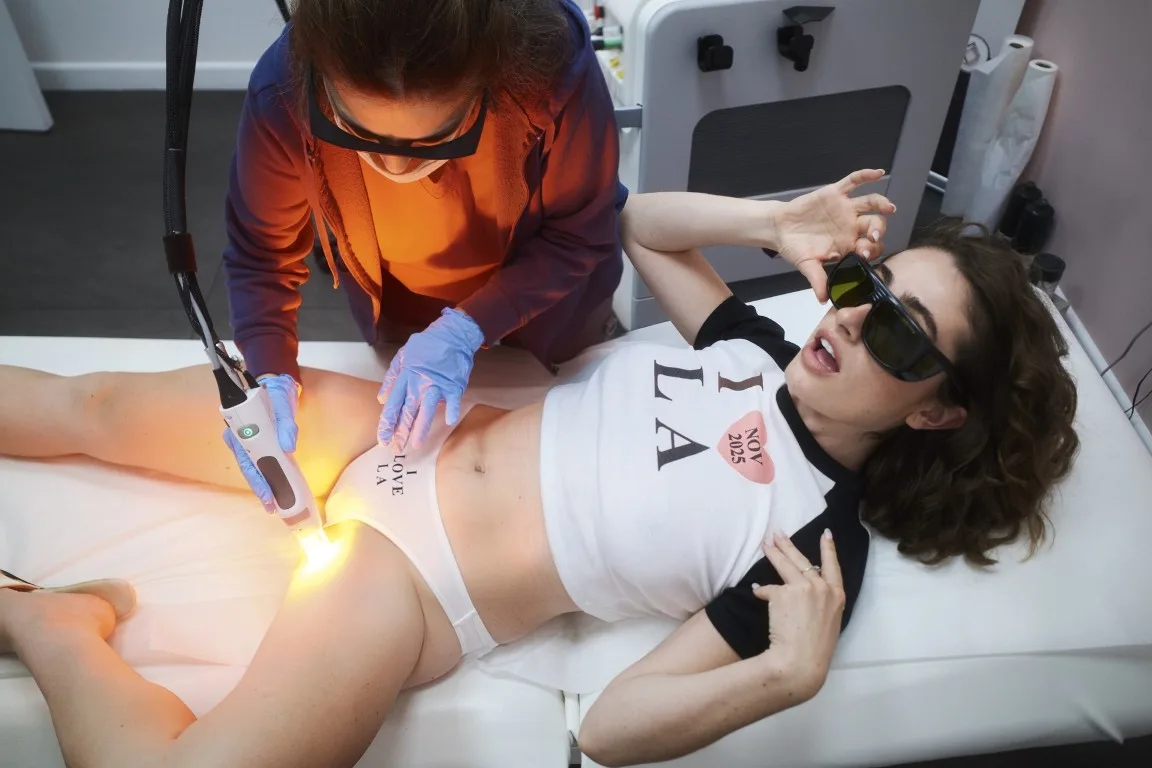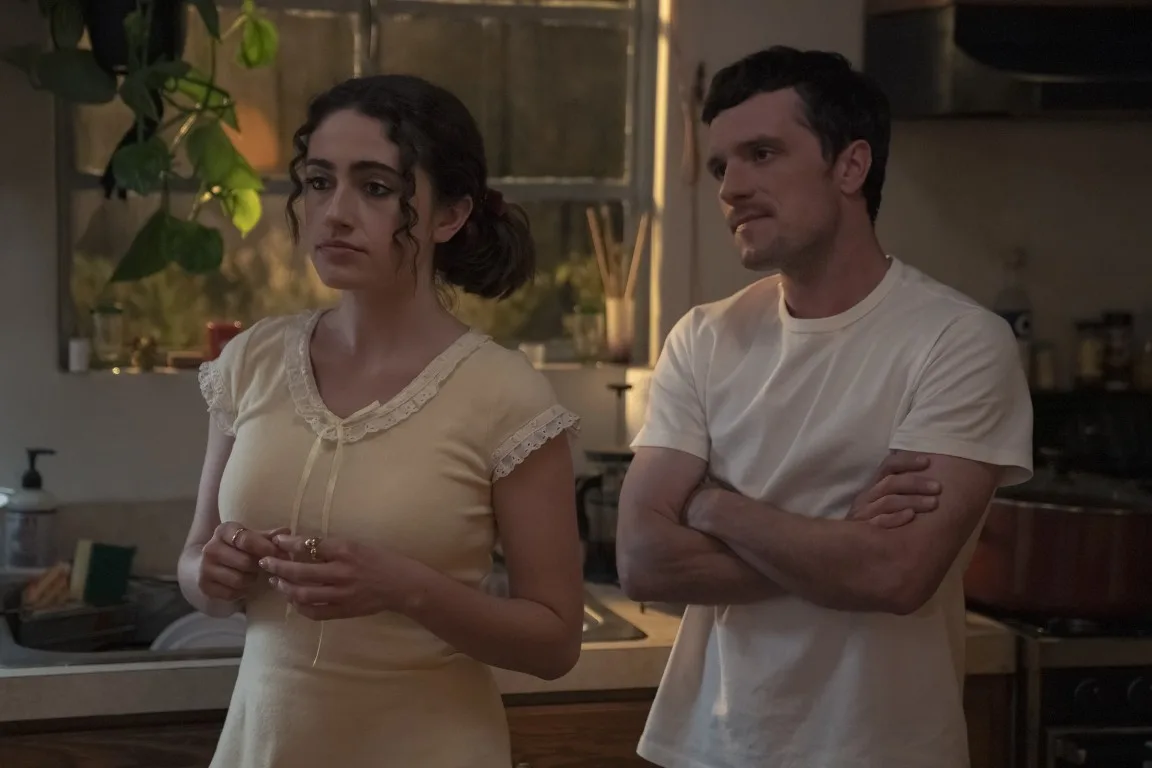Early on in Rachel Sennott‘s uproarious West Coast comedy “I Love LA,” a character whines, “What’s the point of being nice if no one who can help me sees it?” If anything, that feels like the thesis statement for the 30-year-old actress and comedian’s new show, which feels like “Girls” filtered through the LA showbiz vibes of “Entourage” and “The Other Two.” It’s a show for the self-obsessed, the image-centric, and the painfully irresponsible. In that respect, it might capture its setting and cohort perfectly.
Creator Sennott, who made a splash in Emma Seligman’s “Shiva Baby” before spinning off into roles in “Bodies Bodies Bodies” and “Bottoms” (which she co-wrote with costar Ayo Edebiri), stars as Maia, an aspiring talent manager who works as the coffee bitch for a mid-size talent agency. (Her boss, played by Leighton Meester, is the kind of employer who will flit between treating you as a friend and an employee depending on what you can do for her in that second.) She’s got a dream boyfriend in Dylan (Josh Hutcherson), the kind of sexy, supportive provider whose generosity clearly gets taken for granted by the vapid Maia. Lucky for her, she’s still tight with her college friends, celebrity stylist Charlie (Jordan Firstman) and nepo baby actress Alani (True Whitaker, daughter of Forest, herself a nepo baby), who look up from their phones just long enough to validate her own ambitions.
But the winds start to shift when Tallulah (Odessa A’zion, daughter of Pamela Adlon), a budding influencer and Maia’s former bestie-turned-frenemy, drops by her doorstep unexpectedly, looking to rekindle their friendship (and have Maia become her new agent). Maia has beef with Tallulah from past resentments, and it’s clear from seconds of interaction that their dynamic is toxic, codependent, and deeply troubled. But it’s that same codependence that keeps them addicted to each other’s orbit, and so the pair falls back into their old habits from back in New York, now filtered through the sun, sex, and superfluousness of 2020s Los Angeles.

From the get, “I Love LA” feels like a stare down the barrel at the age of Internet ‘it’ girls, and the parasocial relationships that have to be built in order to get ahead in that particular town. Characters weaponize Instagram blocks and TikTok Lives to hurt or gain access to those they love, covet, or hate; we get gags about click farms, celebrity house parties (though the cameo we get here, which we’ll leave unspoiled, is choice), and the carefully curated language influencers use to get themselves out of bad PR. (“White on white bullying is much easier to come back from,” a crisis management consultant tells Maia after one of Tallulah’s near-cancellations.)
Our central group of besties, save Dylan, are fully sucked into this superficial world and feed off each other’s narcissism, which—if you’ve got the stomach for unsympathetic characters—is “I Love LA”‘s secret weapon. Sennott and her team of writers find a beautiful cadence for the kind of tossed-off, vocal-fry-laden witticisms these like-obsessed sociopaths spill from their mouths. Maia wryly observes at a mid-level LA club that “They used to roofie people, but then they fixed it.” (“Bummer,” replies Tallulah.) “You were boho,” Charlie barks at a client who’s just fired him in humiliating fashion. “I made you cunt.”
It helps, of course, that the performances are natural and fast-paced, clearly taking Sennott’s acerbic, deceptively nuanced lead. These are smart portrayals of dumb characters; Whitaker, though she gets the least runway of the central group, makes the most of Alani’s lack of self-awareness and lands quite a few good jokes. A’zion is also a treat, bouncing off Sennott with devil-may-care glee in ways that clash and feed off their respective energies. (Her eventual romance with a local chef, played by Moses Ingram, grounds her in a way that balances the rougher edges of the character.)

Hutcherson is quietly integral to the show as the one normal person in the group, whose relative groundedness (he just loves to cook and play board games, dude) offers a squeaky-clean mirror for the varying flavors of self-destruction on display. But Firstman is perhaps the highlight of the group, a gay man who tries—and repeatedly fails—to channel the catty energy of an LA queen into personal success. (The show delights in forcing us to ask whether Charlie has the worst gaydar in the world, or if LA culture makes even the straightest hot guys act really, really gay.)
Amid the laugh-a-minute dialogue and innately absurd scenarios, “I Love LA” is more than a zoo where we can point and laugh at obsessive selfie-takers. Sennott finds remarkable moments of vulnerability in Maia’s pathological neediness and insecurity, even when the hustle culture she so covets leads her down self-destructive paths that affect her friendships and relationships. In the city, everyone is a resource, a chance to network, a vehicle through which one can bolster their reputation. But you can also tell that these people (stunted by COVID lockdowns, influencer culture, and the transactional, success-breeds-all nature of LA) desperately want to figure out how to belong and matter.
Maia’s codependency toward her friend group comes from a desperate desire for community. In their best moments, they do come together in harmony—even if it’s just to hate on a rotted bitch’s Instagram grid.
Full season screened for review. Premieres November 2 on HBO.

.jpg) 3 hours ago
1
3 hours ago
1
 English (US)
English (US)